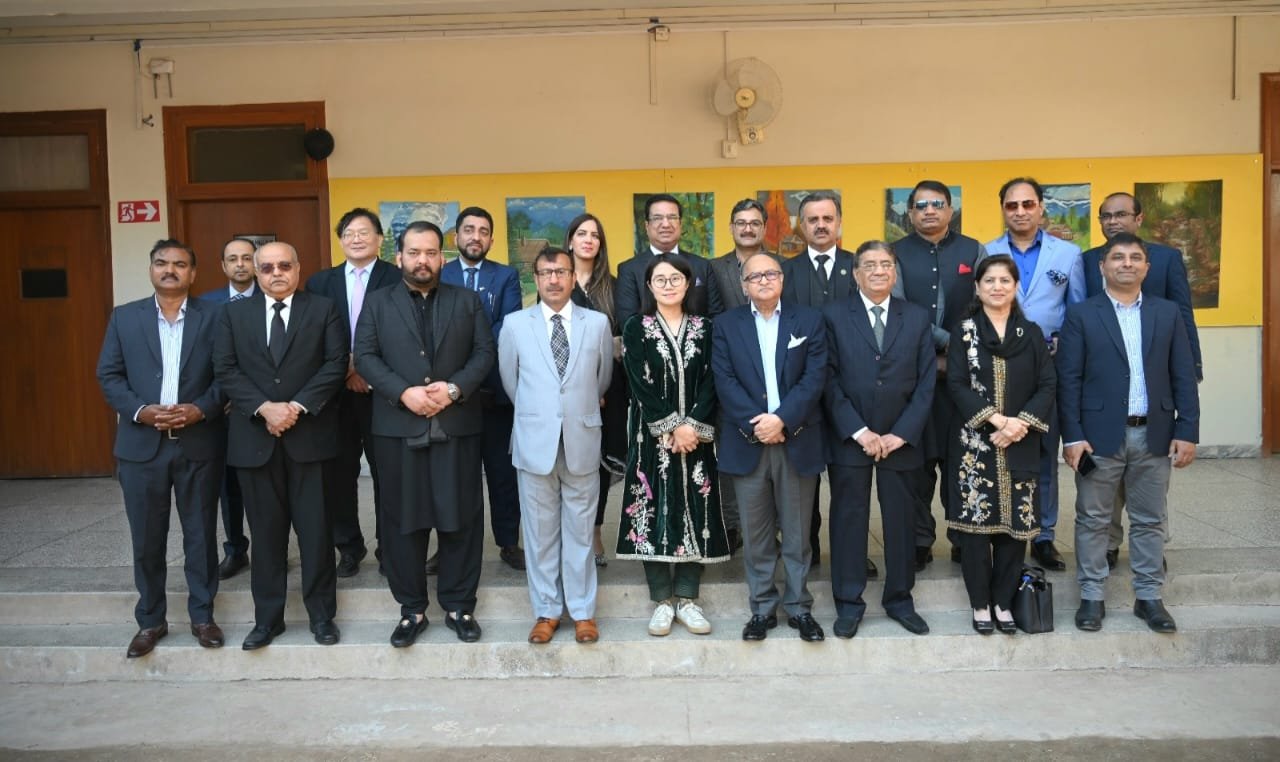Islamabad, Pakistan: On February 22, 2024, the Chinese Media Group (Islamabad Studio), in collaboration with the School of Media & Arts, Foundation University of Science & Technology (FUSST), and the Pakistan Research Centre for a Community with Shared Future (PRCCSF), hosted an international conference on the role of media in enhancing global connectivity through the Belt and Road Initiative (BRI).
Exploring the Role of Media in Global Connectivity
The conference focused on how media shapes public perceptions of the Belt and Road Initiative (BRI). It also examined the core values of Chinese journalism, and how these values influence reporting standards, cultural exchange, and public discourse.
Chinese media actively promotes the BRI by highlighting its role in boosting trade, attracting investments, and expanding markets for participating countries.
Opening Remarks and Vision
Brig (R) Dr. Abdul Ghafoor, Rector of Foundation University Islamabad, welcomed the participants. He praised Chinese media for promoting positivity and shared his vision for establishing a regional media connectivity center. This center would focus on joint projects, training, and exchange programs to foster stronger media ties.
Keynote Address on Belt and Road Initiative
Mr. Khalid Taimur Akram, Executive Director of PRCCSF, spoke on the global impact of the Belt and Road Initiative. He emphasized China’s commitment to collaboration for sustainable development and mutual prosperity. He also highlighted the BRI’s potential to foster regional trade and build a more interconnected global economy.
Media’s Power to Shape Reality
Dr. Hina Shahid, Head of the Arts and Media Department at FUSST, discussed the media’s role in constructing public reality. She explained how the presentation of news stories, language, and visuals influence public perception.
She stressed the need for responsible journalism and media literacy. According to Dr. Shahid, media should be a force for positive change, helping society understand complex issues like the BRI.
Insights from International and Local Experts
China-Pakistan Media Cooperation
Ms. Jianing Du, Bureau Chief of China Media Group Islamabad, shared her experiences promoting media cooperation between China and Pakistan. She outlined how the China Media Group contributes to CPEC communication and awareness through regular programming and video content.
Regional Connectivity and Global Community Building
Dr. Wanchu Zhong, from the Communication University of China (CUC), highlighted Eurasian cooperation through the BRI. She recommended joint efforts to tackle global challenges like climate change and infrastructure development.
Cross-Continental Collaboration
Mr. David Haruna Mrisho, from the University of St. Augustine, Tanzania, spoke about how the BRI creates new opportunities for global connectivity. He noted the importance of policy coordination to enable smooth continental connections.
Media’s Role in Promoting the BRI
Mr. Sarmad Ali, Secretary General of the All Pakistan Newspaper Society (APNS), emphasized the need for media cooperation in fostering China-Pakistan relations. He stressed that ethical reporting and press freedom are key to building trust and mutual understanding.
Media and Public Perception of Connectivity Projects
Mr. Shahid Mehmood Khokhar, Chairman of the Implementation Tribunal for Newspaper Employees (ITNE), highlighted how media shapes public debates around connectivity projects like the BRI. He called for balanced reporting to promote greater public awareness.
Geopolitical and Cultural Perspectives
Mr. Ashfaq Gondal, former Federal Secretary of Information, discussed the geopolitical impact of the BRI and the positive role of China-Pakistan cooperation in promoting peace and development.
Dr. Adam Saud, Head of Social Sciences at Bahria University, explored Eurasian cultural diplomacy and the importance of promoting soft power through media.
The Media’s Role in CPEC
Mr. Asim Khichi, Managing Director of the Associated Press of Pakistan (APP), highlighted media’s role in supporting regional connectivity through CPEC. He encouraged the media to play a leadership role in informing and engaging the public on BRI-related developments.
Closing Remarks and Recognition
Mr. Ovais Ali Khokhar, Chairman of the Board of Experts at PRCCSF, concluded the event by emphasizing that the BRI promotes global cooperation, cultural exchange, and sustainable development. He described the BRI as a pathway to a brighter, more interconnected future.
Dr. Hina Shahid also thanked the organizers, speakers, and attendees for their contributions to this important dialogue.
Poster Exhibition on the Belt and Road Initiative
Alongside the conference, a poster exhibition titled “Belt & Road Initiative – A Journey towards a Prospective Future” showcased student artwork. The top ten participants were awarded for their creative and impactful visual stories on the BRI.
Event Participation
Over 200 students from Foundation University attended the conference, gaining firsthand insights into media’s role in global connectivity and the BRI’s impact on regional and international development.





